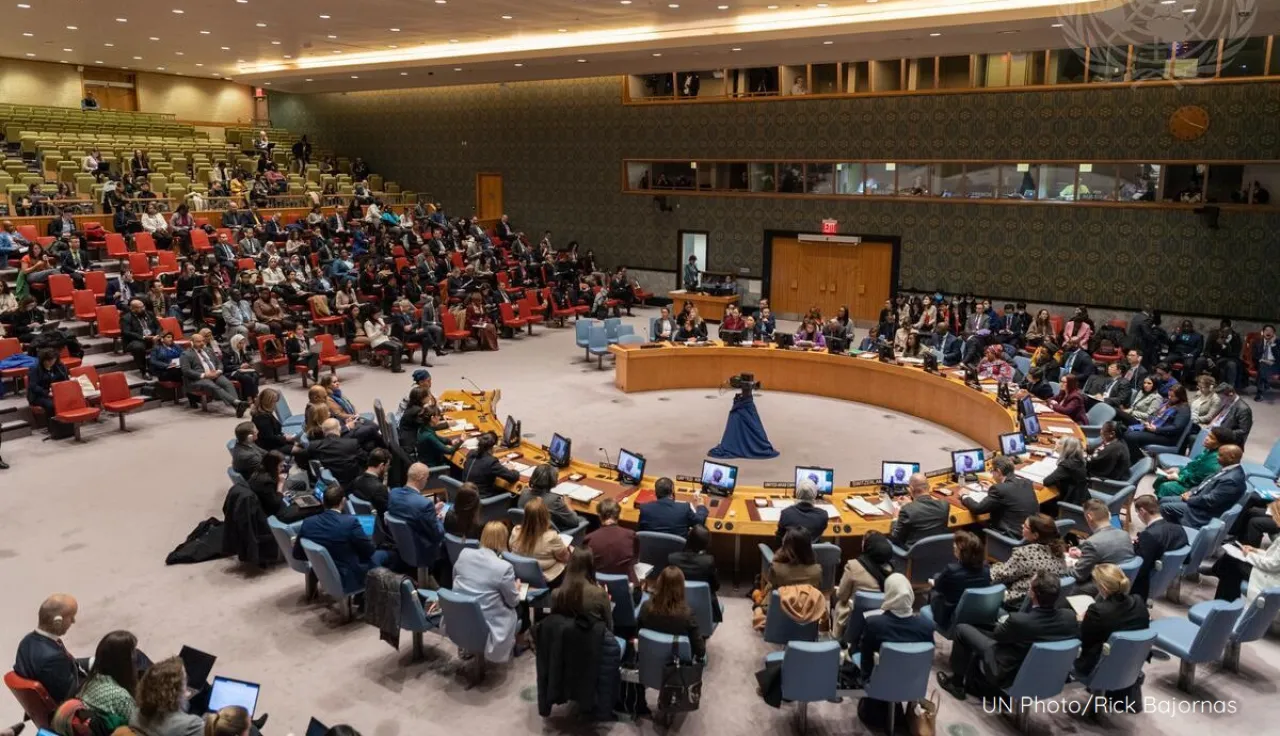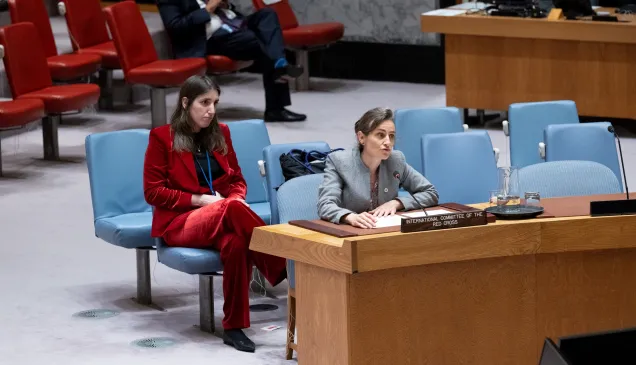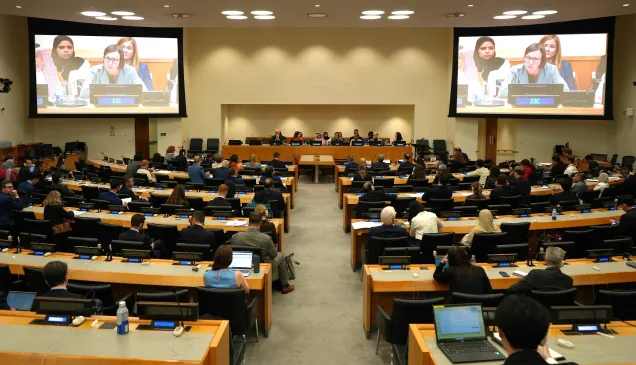Women, Peace, and Security: Towards the 25th anniversary of resolution 1325

Speech given by Mirjana Spoljaric, President of the International Committee of the Red Cross. UNSC Open Debate. 7 March 2023
Madam President,
I thank the Republic of Mozambique for convening this important debate.
As we speak more than 100 armed conflicts are raging around the world. At the same time, hard won generational gains on gender equality are being reversed.
This is no coincidence. As respect for gender equality declines, violence rises.
When armed violence intersects with pre-existing patterns of discrimination, the impacts are disastrous for communities.
Gender inequality harms us all, and it holds back women and girls the most.
From frontlines to camps and prisons, the ICRC sees daily the brutal impacts of armed conflict on women and girls:
- They are exposed to sexual violence at the hands of arms bearers at shocking levels.
- They die giving birth, unable to access the medical care that could save them.
- Women and girls are displaced, at risk of further abuses while in search of water, firewood, food in their daily struggle for survival.
- Others are former soldiers, dehumanized and often denied equal treatment as their male counterparts.
- Some are detained in prisons that were designed for men – and therefore unsuited to their needs.
- Other women go missing and are at greater risk of not being reported or adequately recorded by the authorities.
- And in the digital space, women's safety and dignity is threatened by gendered disinformation and abuse.
Civilians, fighters, caregivers, prisoners, mothers, daughters – the realities of women in conflict are all-too-often invisible, disregarded.
Every day the International Committee of the Red Cross bears witness to the vital role that women play to protect and lead their families and societies – for instance in their mobilization and search for their missing relatives.
The ICRC is also acutely aware that humanitarian responses that fail to take gender inequality into account, are likely to reinforce gender-based discrimination and other harms.
ICRC's principles are there to guide us: Humanity, impartiality, and neutrality. Taking these three principles together means that we take the side only of the victims of armed conflict and violence, whether men, women, or children.
Neutrality, in particular, is a practical tool that allows the ICRC to negotiate access to populations affected by conflicts in the most hard-to-reach places. As a neutral organization we do not take a stand on political, military, or ideological matters. But this has never prevented us from seeking to reach and alleviate the suffering of people, and the harms they face shaped by social or political and power dynamics.
Madam President,
I propose three areas for action:
One, International humanitarian law lies at the heart of protecting all victims of conflict. This means that diverse women, men, boys, and girls are protected equally.
Respect for international humanitarian law will prevent the enormous harm resulting from violations of its rules, and it will help to rebuild stability and reconcile societies.
Importantly, international humanitarian law prohibits discrimination and requires parties to armed conflict to assess and take steps to reduce expected civilian harm.
Effective implementation of these obligations requires the political will of states to assess their own conduct – and to seriously examine whether their fighting forces have the resources and expertise to take the protection of the whole civilian population into account.
It is urgent that states commit to apply a gender perspective into the application and interpretation of international humanitarian law.
These commitments can be made in Women, Peace and Security national action plans or related policies.
Second, states must ensure that the clear prohibition of sexual violence under international humanitarian law is integrated into national law, military doctrine and training.
While acts of sexual violence are prohibited, both explicitly and implicitly under IHL in both international and non-international armed conflicts, it is too often a known and normalized reality.
Currently, national frameworks feature inadequate definitions of sexual violence and multiple barriers that prevent survivors from coming forward. Survivors of sexual violence often suffer from a double violation, facing community rejection or stigmatization if they attempt to access support or legal services.
Domestic law and policy changes are required. They should be robust, resourced, and implemented. Engaging more boldly and directly weapon bearers on this issue, with the ultimate goal that it does not occur in the first place, should become a de facto preventive approach supported and facilitated in times of peace – to prevent the worst in times of war.
Third, states can empower women before, during, and after the onset of armed conflict to support a greater likelihood of achieving a sustainable peace.
If women are absent in formal labour markets, if they are not equally benefitting from digital transformation and technological advancement, if they have no access to healthcare, if they must live with the physical and mental scars of gender-based violence, how will they take their seat at the table?
In peace time women must be empowered politically, legally and economically if they are to play a role in political settlements. Only those who control assets will, at the end of the day, have influence when important decisions are made.
It is vital that women are not just at the table to make up the numbers – but are empowered to represent their communities.
Closing the gender gap in innovation and technology is the focus of the 67th session of the Commission on the Status of Women, which opened its work yesterday.
Nowhere is the digital gender divide more acute than in conflict setting. We must urgently ensure that the promises of technological advancement support efforts towards gender equality and women's empowerment in these contexts too.
Madam President,
The protection of those faced with the greatest discrimination and dehumanization – very often, women and girls – lies at the heart of respect for the law as a pathway to sustainable peace.
Peace comes closer when people of all genders are respected and protected equally, free from physical and mental harm, and have the same opportunities to shape their future.
Thank you.



